|
|
|
Dr. Cherif AMIRAT
member of the IEEE Inc. executive team .
Chief Information Officer (CIO) with a responsibility to lead a global team of technology and engineering professionals
|

|
|
|
|
Title: Innovation
Abstract:
Innovation is the engine for economic growth. Many pursue it, yet few succeed in realizing the benefits and value creation. Establishing and driving innovation in organizations that are steeped in rigid processes, structures, guidelines, and predictability is never an easy task. After all, innovation at the heart can be disruptive to those very things. While process and standardization is effective, and often essential to many elements of business, it can slow down and even kill innovation. The presentation assesses the current state of innovation and present a roadmap for establishing the right culture, structure, process and resources to enhance the likelihood of a successful innovation journey.
Short Bio:
Dr. Amirat is currently a member of the IEEE Inc. executive team and serves as its Chief Information Officer (CIO) with a responsibility to lead a global team of technology and engineering professionals. Prior to joining IEEE, Dr. Amirat was a Senior Director of Business Technology at Pfizer Inc. with responsibilities that included leading multiple teams across different continents and countries. He has served as the regional business technology director for Africa and Middle East. He also worked at AT&T Bell Laboratories as a Member of Technical Staff. He is currently an adjunct professor at Rutgers University in New Jersey (USA) teaching the Information Technology Strategy course for graduate students.
Dr. Amirat is a graduate of INELEC with its first engineering class. He holds a Master’s degree and a Ph.D. in Electrical Engineering and Computer Science from Stevens Institute of Technology (USA), and an MBA from Wharton Business School, University of Pennsylvania (USA). He serves on the advisory board of the Stevens Alliance on Innovation and Leadership. Dr. Amirat a recipient of IEEE R1 Managerial Excellence in an Engineering Organization Award for visionary leadership in the development of information technology and management strategies for large organizations. https://www.linkedin.com/in/cherifamirat/
|
|
|
|
Prof. Samir Bouaziz
|
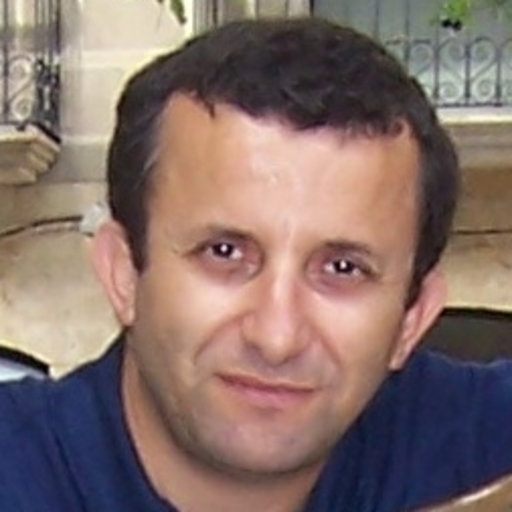
|
|
|
|
Title: Embedded Systems Design: Field Experience Feedback
Abstract:
The design of embedded systems requires multi-disciplinary expertise (capabilities, competencies, skills) in order to overcome multi-level technological and scientific obstacles (challenges, limitations, issues), including managerial ones. Indeed, designing such systems means having a level of expertise that is too high for a single designer. Capitalizing on a team's knowledge then becomes a technological challenge and necessarily has an impact on the R&D team's ability to tackle the problem at hand with qualitative constraints. The transition from modelling to instantiation (proof of concept) or prototype is impacted by many human factors such : learning to know, learning to do, learning to live together and learning to be ( the ability to work in a team, to share knowledge, know-how and interpersonal skills). Examples will be given, in the context of research collaborations as well as training. All of this raises fundamental questions about the orientations and strategies to design these systems, to respond to future societal problems.
Short bio:
Samir Bouaziz graduated at the top of his class from U.S.T Houari Boumediene university as an electronic engineer . He received in 1992 a scholarship for a PhD dissertation from the university of Paris-Sud. He is actually University professor in embedded systems .
He teaches embedded industrial electronic at Polytech’ Paris Saclay where he is the head of Departement Electronics Energies and Systems at the French aerospace industries association ( GIFAS)
Mr Bouaziz has supervised various doctoral theses notably those in Cotutelle with Algeria and Morocco .
His work focused on understanding autonomous complex mobile systems( motorcycles, Vehicles and drones) , he is also responsible of action missions with Algeria for the International relations Department at Paris Sacaly’ s University .
He also assumes other tasks in france and at the international level : a scientific expert for both the CIR (credit impot en faveur de la recherche ) and ANRT( association Nationale Recherche Technology) in France and for the account of ( FRQ) Fonds de recherche du Québec .
Mr Bouaziz is passionate on aeronautics issues so he is a member of Parris Jet Simulation and Aviation without Borders Organization, he also educates youth about aeronautics technologies and participated in the organization of the first Aeronautics , Simulation and Drone fair held in 2014 at Oran Algeria as well as Simulation Days at Algeries’ National Polytechnic School IN 2010 .
|
|
Prof. Salima Benbernou
Professor
Head of Intensive and Knowledge Oriented Systems (diNo)computer science department of the University of Paris University of Paris
Université Paris Descartes
|
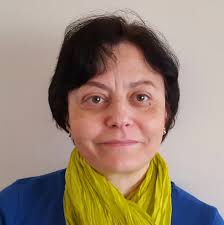
|
|
|
|
Title:Data quality in Unmanned Aerial Vehicle (UAV)s
Abstract:
Using UAV in military sector is not new and has been studied a decade, but military spending for this technology is expected to grow as an overall percentage of military budgets, providing an opportunity for specialized drone manufacturers and software developers. Many of the drones are being designed exclusively for monitoring/surveillance, but others for offensive operations, emergency response, gas leak detection, natural disaster etc. The defense organization have a role to play in helping prevent or mitigate these disasters ahead of time. With that, it has become evident that one of the major challenges in front of them is how to properly leverage data and associated analytics to accomplish this, how to reach data accuracy in order to be efficient for decision making. In this talk, I will present the challenges behind data quality in the UAV setting.
Short Bio:
She is a full professor in computer science at Université de Paris. She is leading data intensive and knowledge oriented system group (diNo) in LIPADE lab. Her current research interest spans data quality in intensive data distributed systems using logic based approaches, privacy/transparency/fairness in internet organizations. She is involved in many research international research agencies. She is acting as an expert for EU commission in security innovation. She has served on various editorial boards and as PC chair of well-known conferences.
|
|
|
|
Dr. Rochdi Merzouki
Professeur des Universités
CRIStAL CNRS UMR 9189
Polytech Lille, Université de Lille
Avenue Paul Langevin
59650, Villeneuve d’Ascq (France).
|
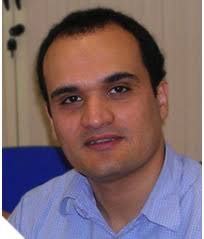
|
|
|
|
Title: Towards Cooperative Robotics:
Manufacturing, Transport and Healthcare
Abstract:
Today, different types of intelligent mechatronic systems are in use or under development for different purposes. Among them, we can cite autonomous robots. One important goal is to use these robots at home or in hospital. For this reason, new concept of robots are designed, often inspired from nature and built with soft materials and smart sensors. The performance of these robots should assist elder people in eating, drinking, compliant grasping tasks etc or for surgery and therapeutically purposes. For such application, nowadays, it is needed to develop a class of robot arms with medium performances, in terms of speed and accuracy, comparing to professional arms with rigid bodies and toys arms, but with reasonable cost-effective. Such mechatronics robots should interact smoothly with the patient during the various interventions. Development of lightweight robot arm should integrate for their design: a mechanical structure made by rapid manufacturing, a low cost and efficient multi-domain actuators with wire-potentiometer sensors, bionic and compliant gripper, and mainly an accurate control.
Short Bio:
Rochdi Merzouki is a Professor in Robotics and Mechatronics at University of Lille: Sciences & technologies in France. Member of CRIStAL Lab. UMR-CNRS 9189, where he is the coordinator of a research group named ‘Integrated Design of Systems and Supervision’. He received the Ph.D. degree in Autonomous Robotics from the University of Versailles in 2002, Master degree in Autonomous Robotics from University of Paris IV in 1999. He is the head of International Master in Robotics and Transport, joint program between Polytech Lille and Ecole Centrale de Lille, www.master-mrt.eu. He is the contact point of regional AIP-Primeca network of Robotics in Polytech’Lille. He was project manager of EU project in Intelligent Transportation for Dynamic Environment (InTraDE), www.intrade-nwe.eu. Actually, he is coordinator of EU project CoBra (www.cobra-2seas.eu). His main research topics are focused on: system of systems engineering, modeling and supervision of mechatronics systems applied to autonomous robotics. Senior member of IEEE, he is author of hundred papers in journals, conferences, patents and books (https://wikis.univ-lille1.fr/ci2s/membres/rochdi-merzouki/cv-rochdi-merzouki).
|
|
Prof. Azzedine Boukerche, FiEEE. FEiC, FCAE, FAAAS
Distinguished University Professor/Eminent
Senior Canada Research Chair Tier-1
Scientific Director of DIVA Strategic Research Network
Director of CREATE-TRANSIT Network
|
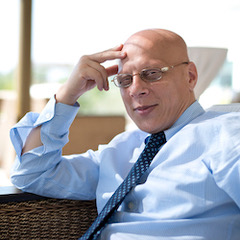
|
|
|
|
Title: Smart Disaster Management and Responses for Smart Connected Cities: A New Challenge for the Next Generation of Distributed Simulation Systems
Abstract:
Every year, natural and human-induced disasters result in infrastructural damages, monetary costs, distresses, injuries and deaths. Unfortunately, climate change is strengthening the destructive power of natural disasters. In this context, distributed simulation-based disaster management and response systems have been proposed to cope with disasters and emergencies by training first responder with the latest ICT technology and improving the disaster detection and search/rescue missions during disaster response. With the recent advances in wireless communication, and the proliferation of portable computers and micro-sensor devices, we are witnessing a growing interest in using wireless multimedia sensor networks and collaborative virtual environment technologies for safety and security class of applications.
In this talk, we will give an overview of some research projects related to smart emergency preparedness and response that are currently being investigated at the PARADISE Research Laboratory at the uOttawa. We will show how collaborative virtual environment, context aware computing, wireless multimedia, and wireless sensor networks can be used to ensure public safety and security. We will focus upon the design of large-scale distributed simulation system for applications that require critical condition monitoring using both location/context aware computing and wireless sensor technologies.
The second part of the talk will conclude by presenting two testbeds that are currently under development at PARADISE: the LIVE testbed, and the SWiMNet testbed. LIVE is a testbed for applications that require emergency preparedness and response. LIVE's architecture integrates wireless sensor networks with wireless multimedia and virtual environment technologies. SWiMNet is a testbed of a high-performance simulation system that supports very detailed and realistic model specifications to enable the design and evaluation of new protocols and applications for future generations of mobile networks, vehicular networks as well as sensor networks.
Short Bio:
Azzedine Boukerche, FiEEE. FEiC, FCAE, FAAAS,
Azzedine Boukerche is a Distinguished University Professor and holds a Senior Canada Research Chair Tier-1 Professor at the University of Ottawa. He is the founding director of PARADISE Research Laboratory at uOttawa, a Scientific Director of NSERC DIVA Strategic Research Network the first ever hosted at the University of Ottawa, and the Founding Director of TRANSIT Network. Prior to this, he held a faculty position at the University of North Texas, and he was working as a senior scientist at the Simulation Sciences Division, Metron Corporation located in San Diego. He was also employed as a faculty at the School of Computer Science at McGill University and taught at Polytechnic of Montreal. He spent a year at the JPL/NASA-California Institute of Technology, where he contributed to a project centered about the specification and verification of the software used to control interplanetary spacecraft operated by JPL/ NASA Laboratory. He has established a world-class reputation as one of the foremost researchers worldwide in the area of large-scale distributed collaborative virtual simulation environment and wireless networking, and, in particular, in the field of designing the next generation of emergency preparedness and responses systems and well as the next generation of intelligent transportation systems. His work has been highly cited and received 19 Best Research Paper Awards in top-tier ACM/IEEE Conferences, He is also the recipient of the 3rd National Award for Telecommunication Software for his work on a distributed security system on mobile phone operations.
He is a Fellow of the IEEE Computer Society, The Fellow of the American Association for the Advancement of Science, a Fellow of the Canadian Academy of Engineering, a Fellow of the Canadian Institute of Engineering. Furthermore, he is the recipient of the IEEE Canada Gotlieb Medal Award, the George Glinski Research Excellence Award, the Spanish Sanders’s Catedra Excelencia Award, the Premier of Ontario Research Excellence Award, Ontario Distinguished Researcher Award, le Prix Club Avenir, IEEE Computer Society TCPP Technical and Leadership Achievement Award, the IEEE Computer Society Meritorious Award, the IEEE Computer Society Golden Core Award, the IEEE Communication Society TC-SoftCom Technical Achievement Award for his work on wireless multimedia the IEEE ComSoc TC-AHSN Award for his leadership on ad hoc and sensor networks.
He is the founding leader of several IEEE/ACM sponsored international conferences and he serves as a Steering Committee and on the editorial boards for several top-tier-1 journals. He is the ACM ICPS Editor-in-Chief and the Editor of three textbooks on mobile computing, wireless ad hoc and sensor networks.
|
|
|
|
Prof. Said Boussakta
Professor of Communications and Signal Processing
School of Engineering
Newcastle University, Newcastle upon Tyne, United Kingdom
|
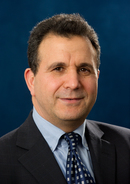
|
|
|
|
Title: Analysing Real-time Distributed Systems using Timed Actors
The Role of Signal Processing in Modern Communications and Information Security
Abstract:
I will introduce timed actors for modeling distributed systems and will explain our theories, techniques and tools for model checking and performance evaluation of such models. Timed Rebeca can be used to model asynchronous event-based components in systems, and real time constraints can be captured in the language. I will explain how floating-time transition system can be used for model checking of such models when we are interested in event-based properties, and how it helps in state space reduction. I will show different applications of our approach including analysing a wireless sensor network application, mobile ad-hoc network protocols, network-on-chip designs, and a macroscopic agent-based simulation of urban planning.
Short Bio:
Prof. Said Boussakta received the “Ingenieur d’Etat degree in Electronic Engineering from the Ecole National Polytechnic of Algiers (ENPA), Algeria in 1985 and the PhD degree in Electrical Engineering from the University of Newcastle upon Tyne, U.K., in 1990. From 1990-2000, he was with the University of Newcastle upon Tyne as Senior Research Associate in digital signal and image processing. From 1996-2000, he was with the University of Teesside, Teesside, UK. as a Senior Lecturer in communication Engineering. From 2000-2006 he was at the University of Leeds as Reader in digital communications and signal processing. He has been with Newcastle University since 2006, working as a Professor of communications and signal processing at the School of Engineering, where he is lecturing in communications networks and signal processing subjects. His research interests are in the areas of fast DSP algorithms, digital communications, communication network systems, cryptography, digital signal/image processing. He has authored and co-authored more than 300 publications. Prof. Boussakta is a Fellow of the IEE, and a Senior Member of the IEEE Communications and Signal Processing Societies.
|
|
|
|
Prof. Mohamed Bourennane
Quantum Information and Quantum Optics Group
Department of Physics
Stockholm University
Albanova University Center
10961 Stockholm
|
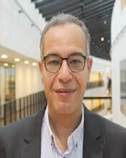
|
|
|
|
Title: Quantum Information: Quantum Sensing and Quantum Imaging
Abstract:
The interdisciplinary field of quantum information processing and communication connects quantum mechanics, photonics, electronics with information theory and computer science at its deepest level to achieve feats in information and communication that are impossible with classical methods. This fusion has led to new concepts such as the qubit and quantum teleportation, and new applications, such as quantum cryptography, quantum sensing, quantum imaging, and quantum computing.
In sensing and metrology, the goal is to achieve unprecedented sensitivity, accuracy, and resolution in measurement and diagnostics, by coherently manipulating quantum objects and to overcome limits of classical methods sensing by means of suitable quantum states and quantum devices. In my talk, I will introduce the quantum mechanics features such as superpositions and entanglement. Then, I will present quantum devices: single photon and entanglement sources and single photon detectors. I review novel quantum-enabled applications: Low intensity signal detection, range finding, quantum radar, and quantum imagin.
Short bio:
Mohamed Bourennane is a professor in quantum information and quantum optics at the physics department, Stockholm University (SU). He is an elected member of the Royal Swedish Academy of Sciences. He was obtained his PhD at the Royal institute of technology (KTH), Stockholm, Sweden. He was researcher in the faculty of physics, Ludwig Maximilians-University, Munich, and at Max Planck Institute for quantum optics (MPQ), Garching, Germany. He has hold junior and senior research positions financed by the Swedish Research Council. He is the research leader of several research projects financed by Swedish Research Council, Knut and Alice Wallenberg Foundation, and European Union.
|
|
|
|
|
|